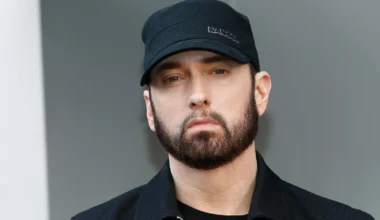Jimmy Page’s legacy is sealed—he’s the architect of Led Zeppelin’s thunderous riffs, a guitar god who reshaped the sound of rock in the ’70s. But by the time Zeppelin exploded, Page was no rookie. In fact, he had already played on more iconic tracks and worked with more future legends than most musicians could dream of.
Long before he summoned the storm in “Whole Lotta Love,” Page was a session phenom—cutting records while most of his peers were still learning to hold a pick. By his late teens, he was a go-to guitarist behind the scenes, quietly laying down parts for artists who would go on to dominate the British Invasion.
He played on The Who’s debut single “I Can’t Explain,” added edge to the earliest Kinks recordings, and even claims to have shredded on “All Day and All of the Night”—though Ray Davies still disputes that. He also backed Them with Van Morrison, did sessions for The Rolling Stones, and essentially became the house guitarist for the future of rock ‘n’ roll.
And this wasn’t even his first act.
Page’s very first studio appearance came at just 18 years old. Recommended by engineer Glyn Johns, he was invited by Decca Records arranger Mike Leander to play guitar on a track called “Diamonds,” a rock instrumental by Shadows alumni Jet Harris and Tony Meehan. That session, held in November 1962 at Decca Studios in Hampstead, was Page’s foot in the door—and what a door it was. The Beatles had only just put out their first single and had already been rejected by Decca. Meanwhile, Decca had just handed Jimmy Page a guitar and hit record.
That debut studio moment predates nearly all the greats of the British rock explosion—except for The Beatles—and showed the industry just how far ahead Page already was. While names like George Harrison, Keith Richards, Brian Jones, and Van Morrison were still finding their footing, Page was already stamping his tone into rock history.
He joined The Yardbirds in 1966, following Eric Clapton and playing alongside Jeff Beck, another guitar revolutionary. Their single “Happenings Ten Years Time Ago” was one of the first real dives into psychedelic rock, blending blues firepower with otherworldly textures. It was a glimpse of what Page would soon unleash in full force with Led Zeppelin.
Page wasn’t just a guitarist—he was a visionary technician. He absorbed the rhythms of Chess Records, the attitude of garage rock, the tension of blues, and the daring of psychedelia. He didn’t just play guitar across genres—he defined how it should be played in each one.
If you want to trace the history of the electric guitar through rock’s most transformative eras—from early rock ’n’ roll to British blues, garage, psychedelia, folk-rock, and ultimately the rise of hard rock—Jimmy Page was there for all of it. Not just present, but mastering every step of the way.
Before he became a legend, he was already a machine. And long before Led Zeppelin, Jimmy Page had already earned his place in rock immortality.





